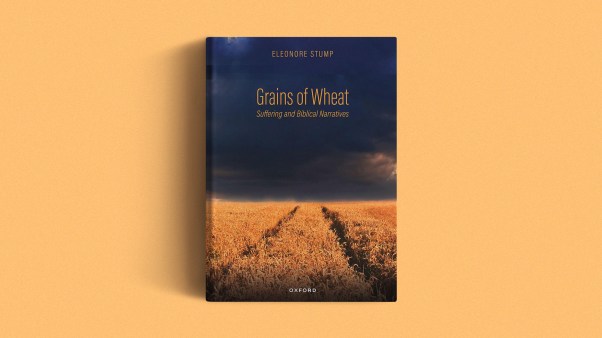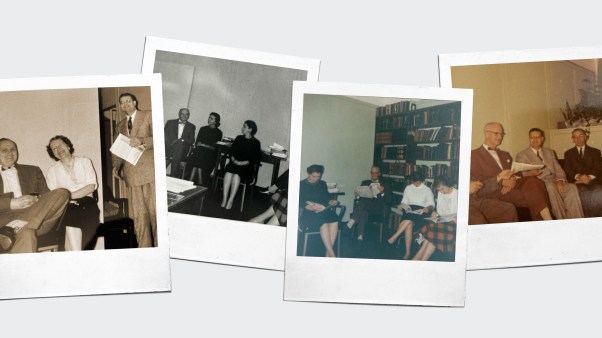The release of Breaking Dawn Part 2, the final movie in the Twilight series, has brought with it what I suspect is the last flurry of Christian reaction to the popularity of the books and films. Mars Hill pastor Mark Driscoll, in a recent blog post titled "A Father's Fright of Twilight," describes the series as "for teenage girls what porn is to teenage boys: sick, twisted, evil, dangerous, deceptive, and popular." Driscoll goes on to highlight news stories about Twilight-crazed teenagers participating in real-life vampirism. He calls for discernment and regrets that Christian parents "naively" allow "this filth" into their children's lives.
I share Driscoll's concern about Twilight. But I diagnose the problem with the series very differently. The differences in our diagnoses are intertwined with the very different ways that Driscoll and I think about gender. Twilight is aimed at girls, and because it appeals so deeply to so many girls and women, the problem with Twilight is a problem about gender. My deeply felt worry is that the ideas about gender that Driscoll advocates publicly are actually the same ideas that fuel the Twilight phenomenon.
Let me explain what I mean. My biggest worry about Twilight is that Bella, the main character, lives a life completely centered on the guy she loves. The love she has for Edward is all-consuming. Absorbing. Total. Her mother worries that Bella orbits around Edward. The girl-in-love is a satellite, circling round the boy, and she wants to give up everything—family, friends, education, the possibility of motherhood, her humanity, even her soul—for his sake. The supernatural aspects of the story feed the passion of course, for Bella and for Twilight fans, but it is this mundane fantasy—girl-who-finds-a-boy-to-be-her-everything—that is the heartbeat of Twilight. What is most terrifying here is not the supernatural but the stuff of fallen nature, the story in which women are made not for God but for men.
I believe that Driscoll's teachings about gender—teachings that take cultural stereotypes about femininity and masculinity and call them "God's will"—feed the same beast that allows Twilight to flourish. To focus critique of Twilight on the fact that it is a vampire story gives a free pass to the mistake at the heart of the story, that in which a boyfriend or husband is confused with a savior.
I fear that equating Twilight with pornography also hides some real problems. I don't doubt that fan mania over Twilight bears some resemblances to porn addiction. Like pornography, Twilight offers a false version of love, sex, and romance that can pull us away from God's good intentions for us in these areas of life. But to call Twilight porn for teenage girls is shaming and masks the problems of real pornography. Twilight isn't porn. Porn is porn. More than one young woman has told me about the moment when she first ran across porn on the internet, the way that image was branded indelibly on her mind's eye. They tell me about how porn has hampered their ability to think about sexuality as a good gift from God. How images of male domination and of women's bodies made of plastic haunt them. If we call Twilight "porn," do we participate in the Christian fiction that porn is only a problem for men?
If anything, Twilight is more idolatry than pornography. It feeds the colossal, fallen fantasy that a girl can find a savior in a boy—if only she gives up everything. The boy will only have to be a culturally prescribed masculine fantasy—strong, jealous, with iron self-control. This idolatry is built on the same platform that Driscoll stands on when he mocks "soft, tender, chick-i-fied church boys" or when he says that good married Christian women will bring the artifacts of porn—real porn, mind you—into their bedrooms to please their husbands (see Denny Burk's review of Driscoll's Real Marriage, critiquing Driscoll's recommendation of sodomy and sex toys in the marriage bed). Driscoll's platform does not distinguish between cultural norms—norms that are broken and sinful—and God's good creative will for us as creatures created, male and female, in his image.
I have written about Twilight—for teenagers, youth leaders, and parents—in my book Touched by a Vampire (a leader's guide is available for download here), and I wrote with the hope of helping the church to think biblically and faithfully about the themes in the story. My advice, for Christians thinking about this vampire romance, is modest but also hopeful. We should try to feed the godly dreams of our daughters—and our sons—not dreams about finding fulfillment in the "the one," but dreams about serving Christ as Lord and using all the talents we are given in love and witness for the kingdom. Rather than encouraging our daughters to wait for their Edward, we should encourage them to find satisfaction in their Savior.
Beth Felker Jones, author of Touched by a Vampire, is associate professor of theology at Wheaton College in Wheaton, Illinois.








